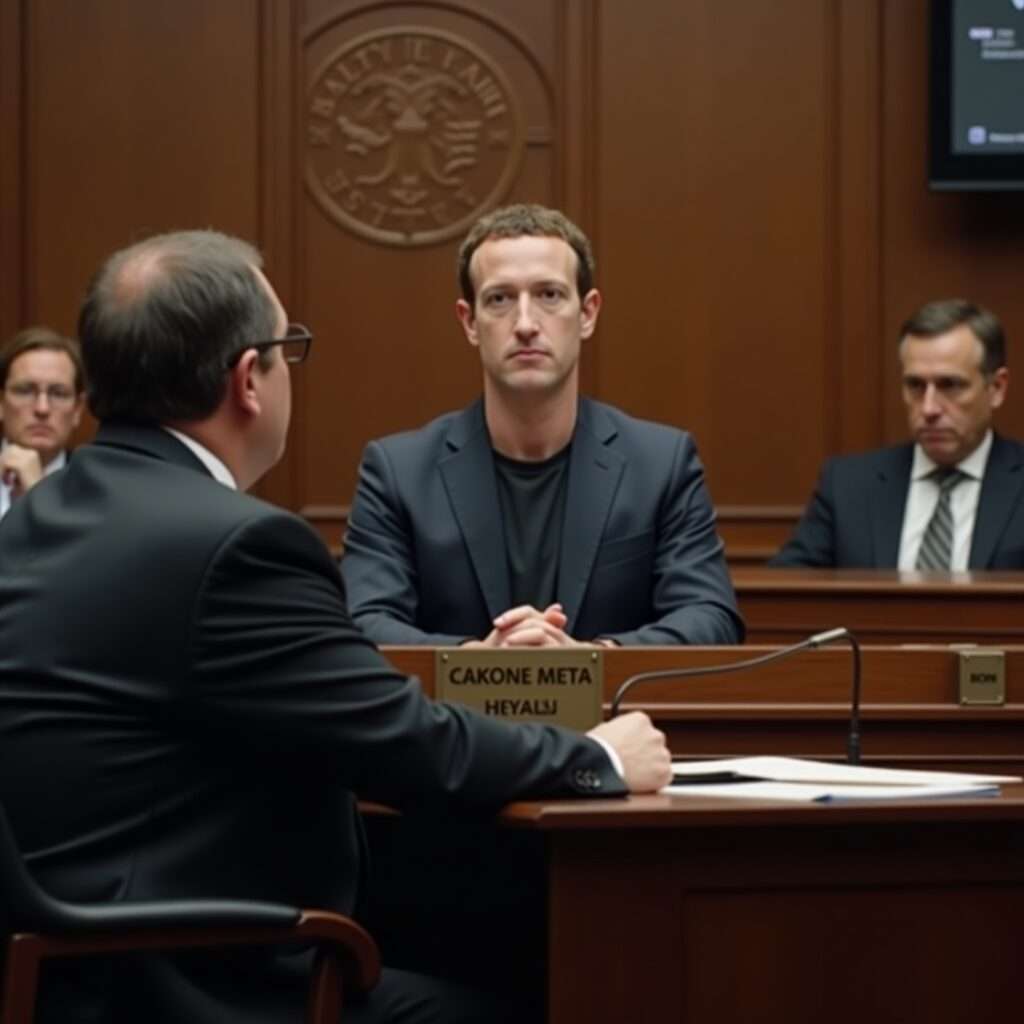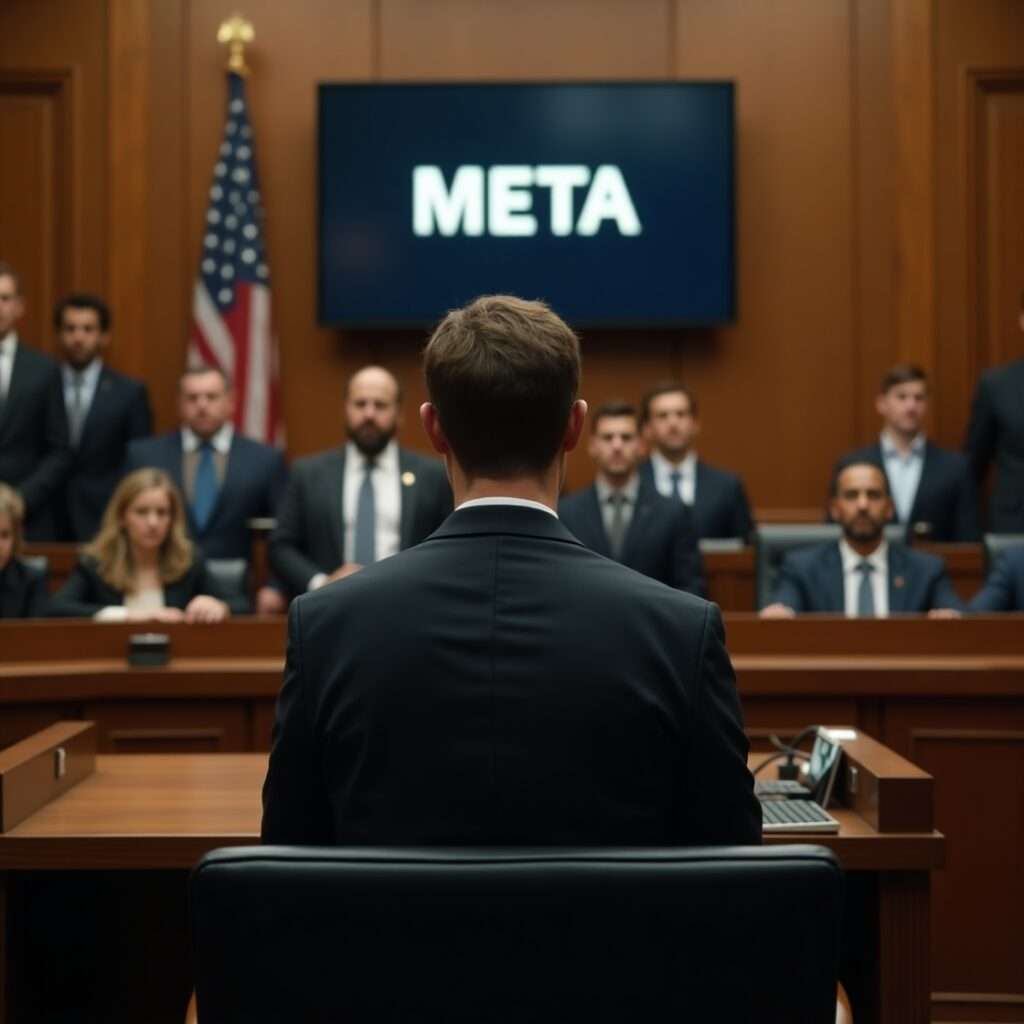1. Introduction: Stakes, Scope, Significance
Meta Platforms Inc.—the parent company of Facebook, Instagram, and WhatsApp—faces an unprecedented $8 billion shareholder lawsuit, now in full swing in Delaware’s Court of Chancery. This trial marks a seismic shift in accountability for big tech executives, spotlighting claims of illegal data harvesting and alleged breaches of fiduciary duties stemming from the infamous Cambridge Analytica scandal.
2. Background: Cambridge Analytica & FTC Consent Order
In March 2018, revelations emerged that Cambridge Analytica accessed private data from up to 87 million Facebook users, acquired through a personality assay app—and without explicit user consent. This data was reportedly used to shape political targeting during the 2016 U.S. presidential election.
This scandal violated a 2012 Federal Trade Commission (FTC) consent decree, which required Facebook to obtain explicit permission before collecting or sharing user data. In 2019, Facebook—now Meta—was fined $5 billion for violating that order TECHi+12Reuters+12New York Post+12Perplexity AI.
Later, Meta also paid a $725 million settlement in user lawsuits, plus additional fines in Europe AP News+2AP News+2AInvest+2. Today’s lawsuit seeks to recover these and other expenses—together tallying over $8 billion.
3. Who’s on Trial: Leaders Named in the Lawsuit
It’s no small cast. The lawsuit names key figures as defendants, each accused of neglecting oversight and allowing violations:
- Mark Zuckerberg – CEO and co-founder, alleged to have known of misuse of data and sold stock with alleged insider advantage Reuters.
- Sheryl Sandberg – former COO, accused of failing to preserve emails and oversight AInvest+12Business Insider+12AP News+12.
- Marc Andreessen, Peter Thiel, Reed Hastings – former board members whose exact roles in oversight are being examined Reuters+4Reuters+4Insurance Journal+4.
- Jeffrey Zients – board member who supported the FTC settlement, now drawing scrutiny Perplexity AI+11AP News+11AInvest+11.
This establishes a clear narrative: a top-down culture allegedly blind to the legal obligations in user-data protection.
4. Legal Framework: Caremark Duties & Fiduciary Oversight

The case centers on a rare yet potent legal concept in Delaware known as a Caremark claim, which asserts that corporate directors failed in their duty of oversight. This is often cited as one of the “most difficult claims to prove”—because it requires plaintiffs to show that directors consciously disregarded known issues or failed to implement any oversight mechanisms AInvest+5Reuters+5TECHi+5Financial Times+5Reuters+5RNZ+5.
In this context, shareholders argue:
- Meta’s board knowingly sidestepped compliance.
- Critical risk on user data was ignored.
- Executives hid behind misleading disclosures.
- Leadership failed to implement proper checks or training.
- Zuckerberg even sold shares before the scandal was publicly disclosed Wikipedia+13Reuters+13New York Post+13TECHi+1Perplexity AI+1RNZ+5Reuters+5AInvest+5.
5. “Misleading Privacy Disclosures”: The Plaintiffs’ Launch
Opening testimony by privacy expert Neil Richards characterized Facebook’s privacy statements as “misleading” Reuters+5AP News+5AP News+5. This lays the groundwork: if users were told their data was safe, yet it was misused at scale, that’s a public and a fiduciary betrayal.
This core allegation gives the plaintiffs foundation to hold executives accountable personally for the ensuing legal and financial fallout.
6. Key Witnesses & Expected Testimonies
• Jeffrey Zients
As a board member from 2018 to 2020, Zients emphasized privacy as a board priority. But he acknowledged Meta chose to pay the FTC fine to move on, rather than contest compliance issues AInvest+2AP News+2AP News+2.
• Marc Andreessen
The Silicon Valley titan will defend his oversight role—especially after his venture firm reaccommodated from Delaware citing unease with the court’s scope in executive liability Reuters.
• Mark Zuckerberg
He is expected to be a central witness, addressing whether he traded stock based on non-public knowledge and whether he was aware of privacy flaws .
• Sheryl Sandberg, Peter Thiel, Reed Hastings
Each is anticipated to testify about their respective roles in compliance, data management, and board oversight Perplexity AI+8Reuters+8Reuters+8.
7. Defence’s Strategy: Compliance, Misleading Third Parties, and No Intent
Meta’s legal team has countered with several key arguments:
- They were misled by Cambridge Analytica, which knowingly bypassed privacy safeguards.
- They hired compliance experts and consultants post-2012 FTC order AP News+10TECHi+10Yahoo Actualités+10AP News+7Reuters+7AInvest+7AP News+5Perplexity AI+5Financial Times+5.
- Zuckerberg’s stock sales were part of a pre-approved trading plan, not insider trading RNZ+3Reuters+3New York Post+3.
- Meta has invested billions since 2019 in user-privacy programs Wikipedia+5Reuters+5Insurance Journal+5.
They also argue the lawsuit misframes board actions—investing in privacy, compliance, and legal defenses is evidence of responsible oversight.
8. Case Length & Timeline
The trial commenced around July 16, 2025, and is expected to last through late next week, before Chancellor Kathaleen McCormick AInvest+12AP News+12Reuters+12.
A verdict on liability and damages is anticipated several months later—notably, this is a non-jury trial, standard for Delaware corporate litigation Reuters+1RNZ+1.
9. Why It Matters
• Precedent for Executive Liability
A rare Caremark victory could redefine the standard for board oversight—making directors personally accountable for privacy failures.
• Meta’s Corporate Direction
Losses could push Meta to overhaul internal governance—and possibly reconsider Delaware incorporation, amid legal tensions AInvest+5Reuters+5TECHi+5.
• Implications for Big Tech
Other large technology firms will watch closely. This trial could signal a tougher era for executives hiding behind ignorance.
• Broader Privacy Enforcement
While GDPR and similar laws grant user-level enforcement, this case represents a new shareholder-level front in privacy litigation.
Conclusion
This Delaware trial is far more than a legal spectacle; it’s a watershed moment for tech accountability. If shareholders win, board members could be personally liable for failing to protect user data. If they lose, the precedent remains, privileges intact. For Meta and the broader industry, the stakes extend into boardrooms worldwide.
- Global Demand for Technology Professionals: Skills, Roles, Job Openings & Future Trends
- Fix ANR on Android: A Complete Guide to Understanding, Diagnosing, and Preventing Application Not Responding Errors
- How to Optimize a PC for Gaming: My Personal Journey with an IdeaPad 3
- AI Fitness Training: How AI in Fitness Training Helped Me Challenge My Students
- iPhone 17 Launch Event, Samsung’s Bright Future, and Key Reviews



